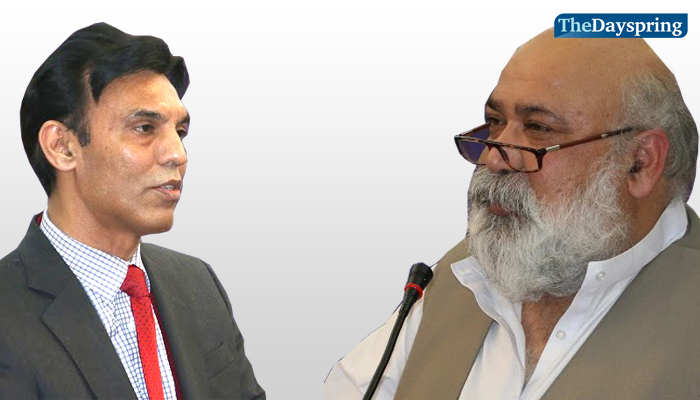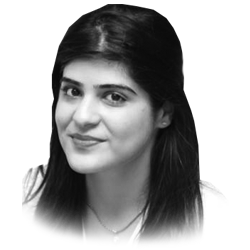26 of the richest people own the same wealth as the rest of population
ISLAMABAD, 21st January 2019: Global inequality report was launched by Oxfam at a ceremony jointly organized by Oxfam and Sustainable Development Policy Institute (SDPI), as political and business leaders gather for the World Economic Forum in Davos, Switzerland. ‘Public Good or Private Wealth’ shows the growing gap between rich and poor is undermining the fight against poverty, damaging our economies and fueling public anger across the globe. It reveals how governments are exacerbating inequality by underfunding public services, such as healthcare and education, on the one hand, while under taxing corporations and the wealthy, and failing to clamp down on tax dodging, on the other. It also finds that women and girls are hardest hit by rising economic inequality.
In his welcome remarks, Oxfam in Pakistan’s Country Director said, “The key themes of the global report are: Economic inequality; Tax – individual and corporate; Gender; Negative impact of inequality and underfunded public services; and Public services as a way for more gender equality and as a way out of the inequality crisis we are witnessing. There is a need for delivering free health care, education and other public services that also work for women and girls. In Pakistan, we should ensure social protection for all and design all services to ensure they also cater to women and girls. Iequality is a man-made disaster effecting billions of people.”
The report reveals that the number of billionaires has almost doubled since the financial crisis, with a new billionaire created every two days between 2017 and 2018, yet wealthy individuals and corporations are paying lower rates of tax than they have in decades. While twenty-six of the richest people own the same wealth as the 3.8 billion people who make up the poorest half of humanity and the super-rich hide $7.6 trillion from tax authorities depriving developing countries of $170bn a year.
During the panel discussion on inequality, renowned Economist Dr. Kaiser Bengali said, “We have created two Pakistan’s: One for the elite and another for the people. While the richest continue to enjoy booming fortunes, they also enjoy some of the lowest levels of tax. Wealth is particularly undertaxed.” Other panelists including Dr. Ikram ul Haq and Mr. Musharraf Zaidi, shared their opinions on the effects of inequality public services and education.
Speaking on global Inequality, Oxfam’s Asia Inequality Campaign Lead Mustafa Talpur said, “We are calling on governments to reduce the unpaid hours women spend taking care of their families and transform our economies to deliver universal health, education and other public services. To make this possible, the richest people and corporations should pay their fair share of tax. This will drive a dramatic reduction in the gap between rich and poor and between women and men.”
SDPI’s Executive Director Dr. Abid Suleri “Governments should listen to ordinary citizens and take set concrete, timebound targets and action plans to reduce inequality as part of their commitments under Sustainable Development Goal 10 on inequality.”
The world’s sixth most populous nation, the Islamic Republic of Pakistan has since its existence witnessed constant challenges along ethnic, religious and political interests, while concurrently displaying resilience and dynamism. Pakistan is today the 44th largest economy (GDP) and despite vast natural resources and promising conditions, the country’s human and economic potential remains largely underdeveloped.
Getting the richest one percent to pay just 0.5 percent extra tax on their wealth could raise more money than it would cost to educate the 262 million children out of school and provide healthcare that would save the lives of 3.3 million people.
Just four cents in every dollar of tax revenue collected globally came from taxes on wealth such as inheritance or property in 2015. These types of tax have been reduced or eliminated in many rich countries and are barely implemented in the developing world.
Tax rates for wealthy individuals and corporations have also been cut dramatically. For example, the top rate of personal income tax in rich countries fell from 62 percent in 1970 to just 38 percent in 2013. The average rate in poor countries is just 28 percent.
In some countries, such as Brazil, the poorest 10 percent of society are now paying a higher proportion of their incomes in tax than the richest 10 percent.
At the same time, public services are suffering from chronic underfunding or being outsourced to private companies that exclude the poorest people. In many countries a decent education or quality healthcare has become a luxury only the rich can afford. Every day 10,000 people die because they lack access to affordable healthcare. In developing countries, a child from a poor family is twice as likely to die before the age of five than a child from a rich family. In countries like Kenya a child from a rich family will spend twice as long in education as one from a poor family.
Cutting taxes on wealth predominantly benefits men who own 50 percent more wealth than women globally, and control over 86 percent of corporations. Conversely, when public services are neglected poor women and girls suffer most. Girls are pulled out of school first when the money isn’t available to pay fees, and women clock up hours of unpaid work looking after sick relatives when healthcare systems fail. Oxfam estimates that if all the unpaid care work carried out by women across the globe was done by a single company it would have an annual turnover of $10 trillion i-e 43 times that of Apple, the world’s biggest company.
From our Print Edition



